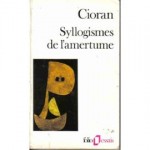Dictionary of Romanian Quotations – Letter “L”
Laszlo, Philip de, on Madame Lupescu:
“I was greatly surprised – she has fine features, lovely red hair, is very versatile in her strong intelligence, and with great experience of the world. She spoke French, English and German to me. I was sorry that her face, particularly her mouth, was so heavily painted, for I think she would look better without, but this place is the home of exaggerated artificiality. I must admit that I am looking forward to painting her. She will be a splendid sitter. Whatever her life and past, she is simpler than these complicated comedians at the Court”.
(Owen Rutter, Portrait of a painter, pp. 376-377)
Lessons:
“Giving lessons means receiving them.”
(Dinu Lipatti (1917-1950), Pianist, Composer, Exile)
Life:
“It’s finished… this story started over there, in the Moldavian plains and it ends here, in the heart of Paris. To reach the great city, where I finished my contest, from the depths of my native village I took a dusty road marked by trees that are passing by to infinity. It was certainly a long road and yet I think of it so short!”
(Georges Enesco (1881-1955) composer, conductor, violinist, exile)
Limerick on Madame Lupescu:
“Have you heard of Madam Lupescu,
Who came to Romania’s rescue?
It’s a wonderful thing
To be under a King:
Is Democracy better I ask you?”
(Anonimous)
Lipatti, Dinu, seen by Clara Haskil:
“Oh, I could spend hours talking about Dinu. He was always so aware, so alive, in spite of all the terrible pain he had to suffer. And his music-making! I really can’t find the words to describe what I felt whenever I hear him play. I often thought he felt almost guilty he had been blessed with so much genius.”
“Clara Haskil, – a self-portrait”,
(from the plaquette of the CD – TAH 430-432 Clara Haskil en récital)
Lisa della Casa about Maria Cebotari:
“Once heard, never forgotten!”
Literature:
“So long as one lives, all is pretext for literature.”
(Eugene Ionesco (1912-1994), dramatist, “Exit the King”)
Literature:
“Prolific in essence, literature lives through the plethora of vowels, through the cancer of the word.”
(Emil Cioran (1911-1995), philosopher, writer, “Syllogismes de l’amertume”)
Living:
“Living is abnormal.”
(Eugene Ionesco (1912-1994), dramatist, “The Rhinoceros”)
Living:
“In time, it was not me who was living, it was the time which was living in me.”
(Gregor von Rezzori (1914-1998), writer, exile)
Love:
“The art of love? That is to know how to match the temperament of a vampire with the discretion of an anemone.”
(Emil Cioran (1911-1995), philosopher, writer)
(“Syllogismes de l’amertume”)
Love:
“Love despaired of them: so long was their embrace.”
(Paul Celan (1920-1970), Poet, Exile)
(“Backlight”, “Collected Prose”, Carcanet, 1986)
Love:
“Love calls for love. It is not as important to be loved as to love with all one’s power and one’s being .”
(Constantin Brancusi (1876-1957), Sculptor, Exile)
Lover:
“After the metaphors, the Chemist. This is how great sentiments are frittered away. To start as a poet and finish as a gynaecologist. From all conditions, that of the lover is the least enviable.”
(Emil Cioran (1911-1995), philosopher, writer)
(“Syllogismes de l’amertume”)
Love making:
“A fuzzy noise together with heavy breathing and short yelps came suddenly out of the speaker… ‘They should be arrested! At eleven in the morning, working people should be out working, not making love.”
(Elena Ceausescu (1916-1989), on listening to a secret service tape,
recorded in a private home in Bucharest,
quoted by Gen. Ion Pacepa’s ‘Red Horizons’, 1988)
Lucidity:
“Purpose of lucidity: to reach a reasonable despair, an Olympian ferocity.”
(Emil Cioran (1911-1995), philosopher, writer:
“Syllogismes de l’amertume”)


















No Comments so far ↓
Like gas stations in rural Texas after 10 pm, comments are closed.